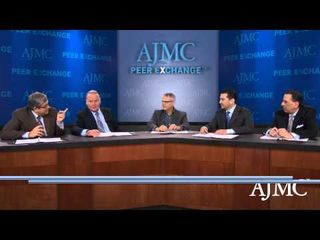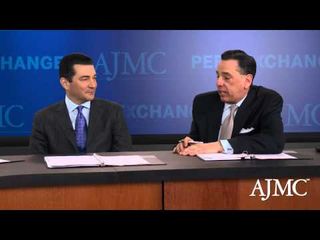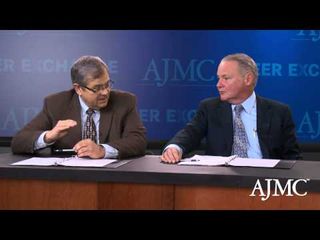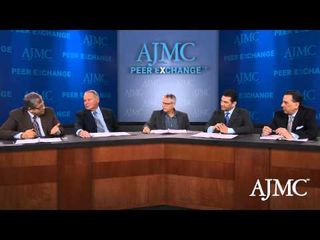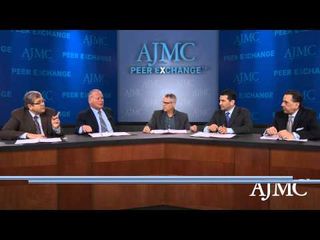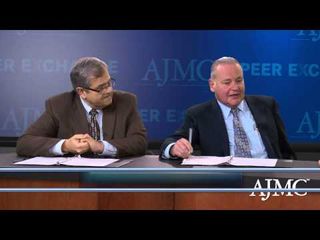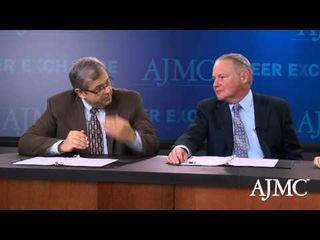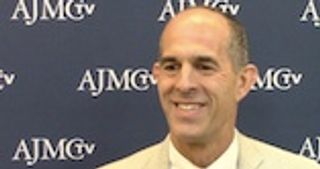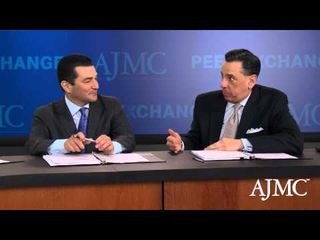
Health Care Cost
Latest News

A funding dispute over how to account for a Veterans Affairs (VA) health care program is stalling deal to fund the government for another year; the Supreme Court rules in a case involving states and pharmacy benefit managers (PBMs); the antiepileptic drug ezogabine lowered the pathologic excitability of cortical and spinal motor neuron cells, which have a role in amyotrophic lateral sclerosis (ALS).
Latest Videos

CME Content
More News

A review found that including exercise, breathing techniques, and education components in pulmonary rehabilitation for patients with acute exacerbations of chronic obstructive pulmonary disease (AECOPD) optimizes such programs.

An analysis published in Health Affairs outlines the benefits of structuring negotiations and standardizing fee-for-service payments independent of any specific reform proposals to control health care spending in 3 high-income countries.

A new report finds including rituximab in first-line therapy for diffuse large B-cell lymphoma (DLBCL) results in better overall outcomes that more than offset the higher initial cost of therapy.

President Donald Trump issued 2 orders Friday aiming to lower drug prices paid by Medicare by invoking a "most favored nations" policy and also by targeting rebates paid to pharmacy benefit managers.

US Rheumatologists Reluctant to Switch to Biosimilars for Patients Doing Well on a Reference Product
Although half of US rheumatologists have patients for which nonmedical switching has been suggested, only 35% were likely to switch patients with rheumatoid arthritis doing well on a reference product to a biosimilar.

Which types of comorbidities have the greatest impact on direct and indirect costs of multiple sclerosis (MS) over time?

A multidisciplinary spine intervention can reduce chronic back pain–related health care utilization and costs, according to a study published in Spine.
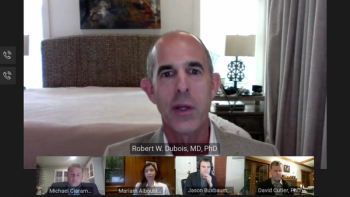
During a webinar, experts discussed where health care has improved life expectancy and the relationship between cost and relative contribution that each area makes to life improvement and expectancy.

During oral arguments, the justices asked skeptical questions regarding Republican state efforts to get the Affordable Care Act (ACA) overturned.

Overuse of reliever inhalers among adult patients with asthma is prevalent, but does not necessarily translate into higher all-cause health care utilization (HCU), according to a study published in Scientific Reports.

A group of patient advocacy organizations released their 100-day agenda for the next president.

There is a lot of uncertainty among providers participating in federal alternative payment models (APMs) given the general election and the upcoming Supreme Court case on the Affordable Care Act (ACA).

As novel therapies drive up the cost of cancer care, federal policy decisions are being made that influence oncologists' ability to deliver cancer care, said Debra Patt, MD, PhD, MBA, MPH, of Texas Oncology.

The American College of Rheumatology (ACR) has joined forces with other provider groups to oppose a plan proposed by UnitedHealthcare that would increase patients’ out-of-pocket costs.

This week, CMS proposed changes to the Medicare Durable Medical Equipment Prosthetics, Orthic Devices and Supplies (DMEPOS) coverage and payment policies which would expand Medicare coverage for continuous glucose monitors (CGMs).

The Trump administration finalized rules aimed at making health care pricing more visible and transparent to those with with health insurance from employers or the individual market.

At the Alliance for Better Health’s CONVERGE Virtual Conference, experts discussed the role social determinants of health (SDOH) play in community-based health initiatives.

Study results demonstrate the multimillion-dollar savings achieved among patients with heart failure with reduced ejection fraction (HFrEF) following treatment initiation with sacubitril and valsartan.

The decision to go on dialysis is often automatic, but using a shared decision-making process reduces the chance that a patient will regret it later.

Heart failure with reduced ejection fraction (HFrEF) is when the heart’s left ventricle can only pump out 40% or less of the blood it contains, resulting in less oxygen-rich blood being disseminated to the body than it actually needs.

2020 is the 25th anniversary of The American Journal of Managed Care® and the October’s issue of the journal features an interview with Dr Kavita Patel, a nonresident fellow at the Brookings Institution and a primary care physician.

Challenges remain, in light of new guidelines, when making treatment decisions for patients with severe asthma, noted Megan Althoff, MD, PhD, second year fellow, University of Colorado, Division of Pulmonary Sciences and Critical Care Medicine.

Marty Makary, MD, MPH, kicked off the Academy of Managed Care Pharmacy Nexus 2020 meeting with a call to action around reducing overprescribing, increasing price transparency, and recapturing the public’s trust in the health care system.

Attendees at the Academy of Managed Care Pharmacy (AMCP) Nexus 2020 meeting will hear a keynote from a surgeon who has become more visible over the past year and a half discussing what he says are “structural problems” behind the cost of US health care.

The authors, from RxCrossroads by McKesson, discuss the impact of copay accumulator and maximizer programs.





